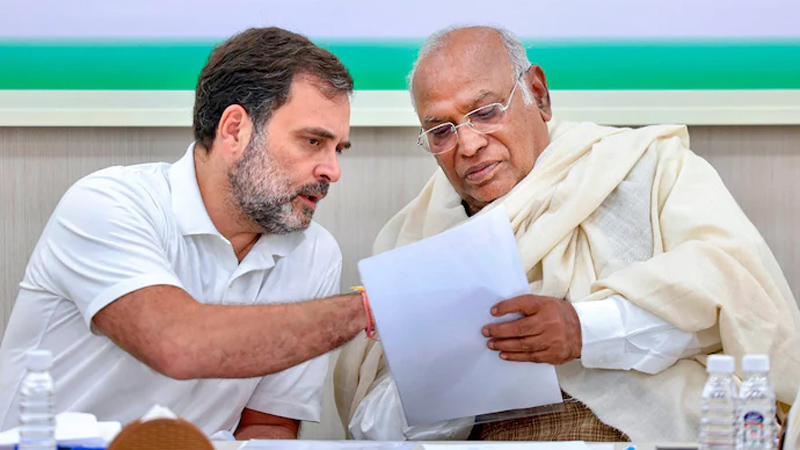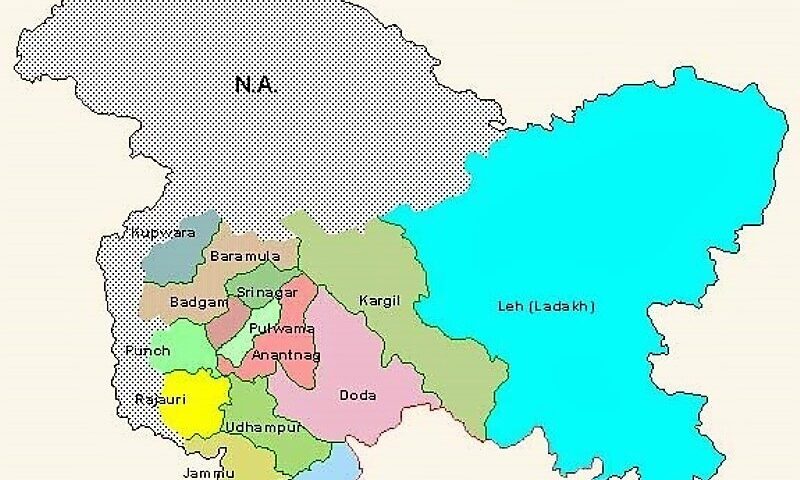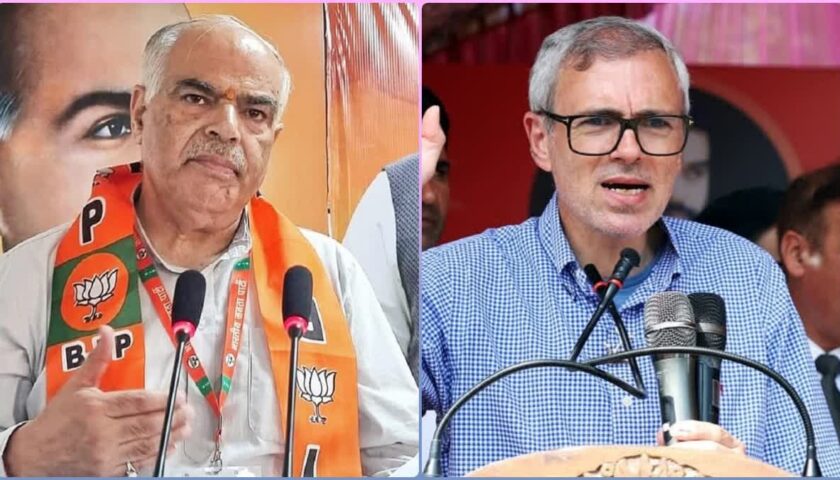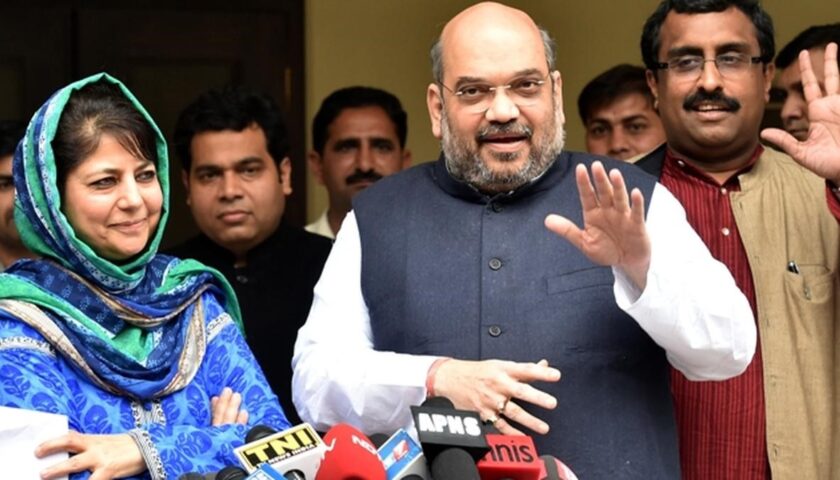Congress Demands Statehood for Jammu & Kashmir: Rahul Gandhi, Kharge Write to PM Modi Before Parliament Session
By: Javid Amin | Srinagar | 16 July 2025
As the national spotlight continues to intensify over the political situation in Jammu & Kashmir, top Congress leaders Rahul Gandhi and Mallikarjun Kharge have stepped into the fray—urging Prime Minister Narendra Modi to restore full statehood to the region in a strongly worded joint letter.
Released just days ahead of the Monsoon Session of Parliament, the letter adds legislative pressure to the growing popular and regional demand for reversing the 2019 downgrade of J&K to a Union Territory—a move widely seen in Kashmir as a betrayal of federal principles.
“The people of Jammu & Kashmir deserve their dignity, their rights, and their statehood—not as a favor, but as a constitutional guarantee.”
— Joint letter by Rahul Gandhi & Mallikarjun Kharge
What the Letter Says: Legal, Moral & Political Foundations
The Congress letter pulls no punches. It declares the 2019 bifurcation of the state into two Union Territories—J&K and Ladakh—as “unprecedented in India’s democratic history”.
It draws attention to three key sources of official assurance:
01. PM Modi’s Own Promises
The letter directly quotes the Prime Minister’s own words from:
-
A May 2024 interview in Bhubaneswar, where PM Modi referred to statehood as a “solemn promise”.
-
A September 2024 rally in Srinagar, where he reaffirmed the commitment to restoration of full statehood post-elections.
By invoking these remarks, Congress frames the demand not as opposition posturing—but as a call for the Prime Minister to uphold his word.
02. Supreme Court Submissions
During the 2023 hearings on Article 370, the Centre had stated on record that statehood will be restored “as soon as possible.” The letter argues that:
“It has been nearly six years. The legal, political, and administrative environment now permits the fulfilment of that promise.”
03. Democratic Deficit
The Congress leadership asserts that continuing Union Territory status in a region with an elected assembly amounts to a distortion of democracy, violating the basic structure of the Constitution that mandates a federal governance model.
Beyond J&K: Congress Pushes for Ladakh Under Sixth Schedule
In a significant move of regional inclusiveness, the letter also calls on the Centre to introduce legislation to bring Ladakh under the Sixth Schedule of the Constitution. This would:
-
Protect the unique tribal cultures and language traditions of Ladakh.
-
Safeguard autonomous governance through Hill Development Councils.
-
Ensure equitable resource allocation and land protection.
The call echoes long-standing protests by Leh Apex Body and Kargil Democratic Alliance, who have been demanding constitutional safeguards post-2019.
Omar Abdullah Responds: “We’re Only Asking What Was Promised”
Jammu & Kashmir Chief Minister Omar Abdullah was quick to welcome the Congress intervention.
“We are not demanding anything that hasn’t already been promised to us. The time for restoration is now.”
Omar’s response aligns with his larger political stance since returning to power in 2024—emphasizing constitutionalism, peaceful assertion, and institutional dialogue, even while facing severe constraints from the UT administration.
Political Repercussions: Pressure Mounting on Centre Ahead of Parliament Session
This move by Congress is significant for several reasons:
01. National Legitimacy for Regional Demands
Until now, demands for statehood and constitutional restoration in J&K have largely come from regional parties—NC, PDP, and others. The Congress backing adds national institutional weight to the cause.
02. Framing the Debate for Parliament
With the Monsoon Session beginning, the letter sets the tone for what could become a flashpoint issue inside both Houses—especially if regional MPs and opposition alliances coordinate efforts.
03. Contradictions in BJP’s Messaging
While the Centre maintains it is committed to statehood “in due time,” its lack of timeline, selective silences, and celebration of centralization send conflicting signals. This letter forces a reckoning.
“If you’ve already promised statehood, why the delay?”—that’s the central question now reverberating through political circles.
Legal Experts Weigh In: Time Is Ripe for Restoration
Several constitutional scholars have publicly supported the Congress position. They argue:
-
The logistics of conducting assembly elections have been proven feasible with the successful 2024 elections in the region.
-
The security situation, as per official records, has improved.
-
Institutional bottlenecks, like delimitation, have already been addressed.
This aligns with the Supreme Court’s own language in the 2023 Article 370 verdict, where it expected statehood to be restored at the “earliest possible time.”
What Restoration Would Mean Politically
Restoring full statehood would have far-reaching implications:
-
Return of control over police and law & order to elected representatives—currently vested in the Centre.
-
Reinstatement of J&K’s autonomy within the Indian Union, even if Article 370 is not restored.
-
A boost in regional confidence, especially among younger Kashmiris who view disempowerment as both symbolic and systemic.
Politically, it would also reshape party dynamics—especially giving regional leaders like Omar Abdullah and Mehbooba Mufti a stronger platform to govern, negotiate, and legislate.
Conclusion: A Constitutional Demand, Not a Political Concession
With this bold letter, the Congress has joined a growing coalition of voices demanding that the promises made to the people of Jammu & Kashmir be honored—not selectively, not symbolically, but substantively and swiftly.
This is no longer just about state vs union control, or symbolism vs legality. It is about the soul of Indian federalism, and whether democracy in Kashmir means the same thing as democracy in Tamil Nadu, Bengal, or Punjab.
And as Omar Abdullah rightly said:
“We are not asking for the moon—just for what was already promised to us, again and again.”




